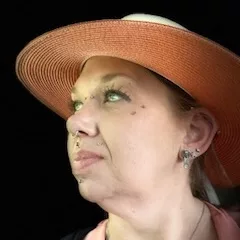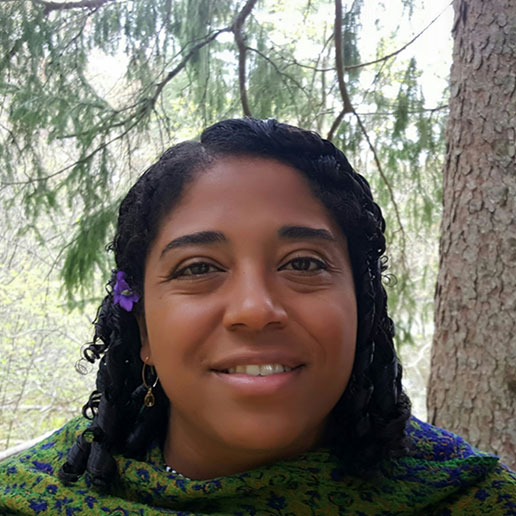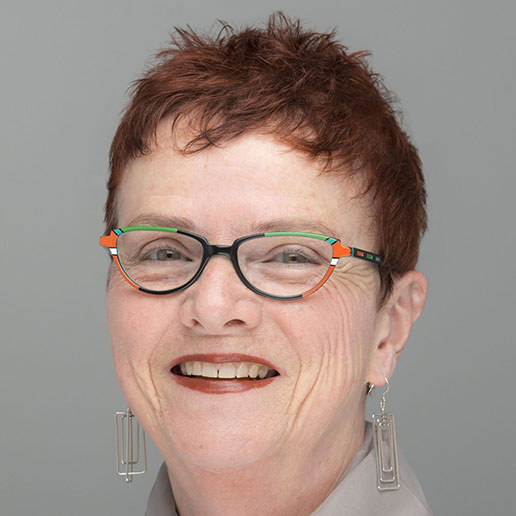Coordinator, Maine Prisoner Advocacy Coalition
she/her
Wendy Allen is a 45 year woman who battled Substance Use Disorder and is in long term recovery. She is formerly incarcerated, and is living proof that recovery is possible. She currently holds many hats in the community. She is a grant writer and coordinator with Maine Prisoner Advocacy Coalition, the Young Adult Diversion Program lead for Restorative Justice Institute of Maine, a Recovery and Re-entry Coach, as well as a Peer Support Specialist for Penobscot Family Recovery Court with Maine Prisoner Re-entry Network. She recovers loud for those suffering in silence. She is a wife, mother and grandmother that enjoys music, crafting and spending time with her family.
Wendy is also a Facilitator for Maine Humanities Discussion Projects and winner of the 2022 Maine Humanities Facilitator Prize.

Talks
Dare to Dream
This presentation is focused on Substance Use Disorder and Allen’s heart wrenching journey battling this disease, what led up to it, and how she has sustained a life in recovery. This is an eye opening presentation around the affects of internal and external stigma, how SUD affects one's thinking, actions and behaviors, and the struggles to survive while living a life in darkness.
This is a “through the lens” presentation that educates communities on the often unspoken truth of a person suffering with SUD, how families and communities are affected, what helps and hurts the one suffering, and how they think and feel before, during and after active use. It touches on how her incarceration and substance use affected her children, and sheds light on how easily this disease can destroy a life and the beauty of recovery.
Substance Use Disorder is taking the lives of our people every day. This strong presentation proves that recovery is possible, if they only dared to dream.

Poet/Author
she/her
Samara Cole Doyon is a second generation Haitian American and multi-generational Mainer–this state claiming half the roots of her family tree. She is a wife, mother, and teacher holding a BA in English from the University of Southern Maine and currently completing a Masters in Teaching and Learning.
She has been a regular contributor at Black Girl in Maine Media, has been featured in the Deep Water poetry column of the Portland Press Herald, and has authored children’s books Magnificent Homespun Brown (Tilbury House Publishers, January, 2020) and Magic Like That (Lee & Low Books, June 2021).
Talks
Embracing Our Magnificence as an Act of Resistance
A discussion based on my debut children’s book, Magnificent Homespun Brown, and how systematically marginalized people survive and transcend oppression through unapologetic self-love and jubilation.
Founder and Director, Franco-American Women’s Institute
she/her/elle
Rhea Côté Robbins was brought up bilingually in a Franco-American neighborhood in Waterville known as the South End. Côté Robbins is the author of creative nonfiction, memoirs titled, ‘down the Plains,’ and Wednesday’s Child, winner of the Maine Writers and Publishers Alliance Chapbook Award.
She is editor of Canuck and Other Stories, an anthology of translations of early 20th century Franco-American women writers who wrote about their immigration experience. Her poems and essays have appeared in many publications. She is the founder and director of the Franco-American Women’s Institute, FAWI.

Talks
Who Gets To Tell Story?
Telling or hearing story while conscious of the human ecology—listening to story justly with social consciousness of equality. I would like to define what qualifies as “story.” I believe essentially that every person, artifact, ritual, etc. is story. Everything we know comes to us via story; we are surrounded by story. Story is the microcosm of the macrocosm. Who, in the cultural milieu, gets to tell story?
Where Are the Franco-American Women in Your Community?
Using a Franco-American woman’s search and research as a model to address the issue of what, if any Franco-American woman wanted to know about Franco-American women and their history, where would they begin if they were not told or not allowed to know and value the contributions of the Franco-American women’s history? Who are the Franco-American women in the state of Maine in regard to the history of ethnic populations? What makes the Franco-American culture worth the focus in regard to ethnic diversity? The answers to these questions remain unknown in the history of Maine. Deeper review of the lives of the Franco-Americans, present and past, reflects this hidden history.
Franco-American Women, Suffrage and Political Activity
What was Camille Lessard Bissonnette doing to promote women’s suffrage in 1910-1911, and what barriers did she face? What was happening across the border in the QC/Canadian women’s suffrage movement, which started in 1912? And who were the Franco-American women of Maine who served in the Maine State Legislature starting in 1935? The lives of these women illustrate the history of women’s suffrage here, connects the present, and helps us understand how we got here.
